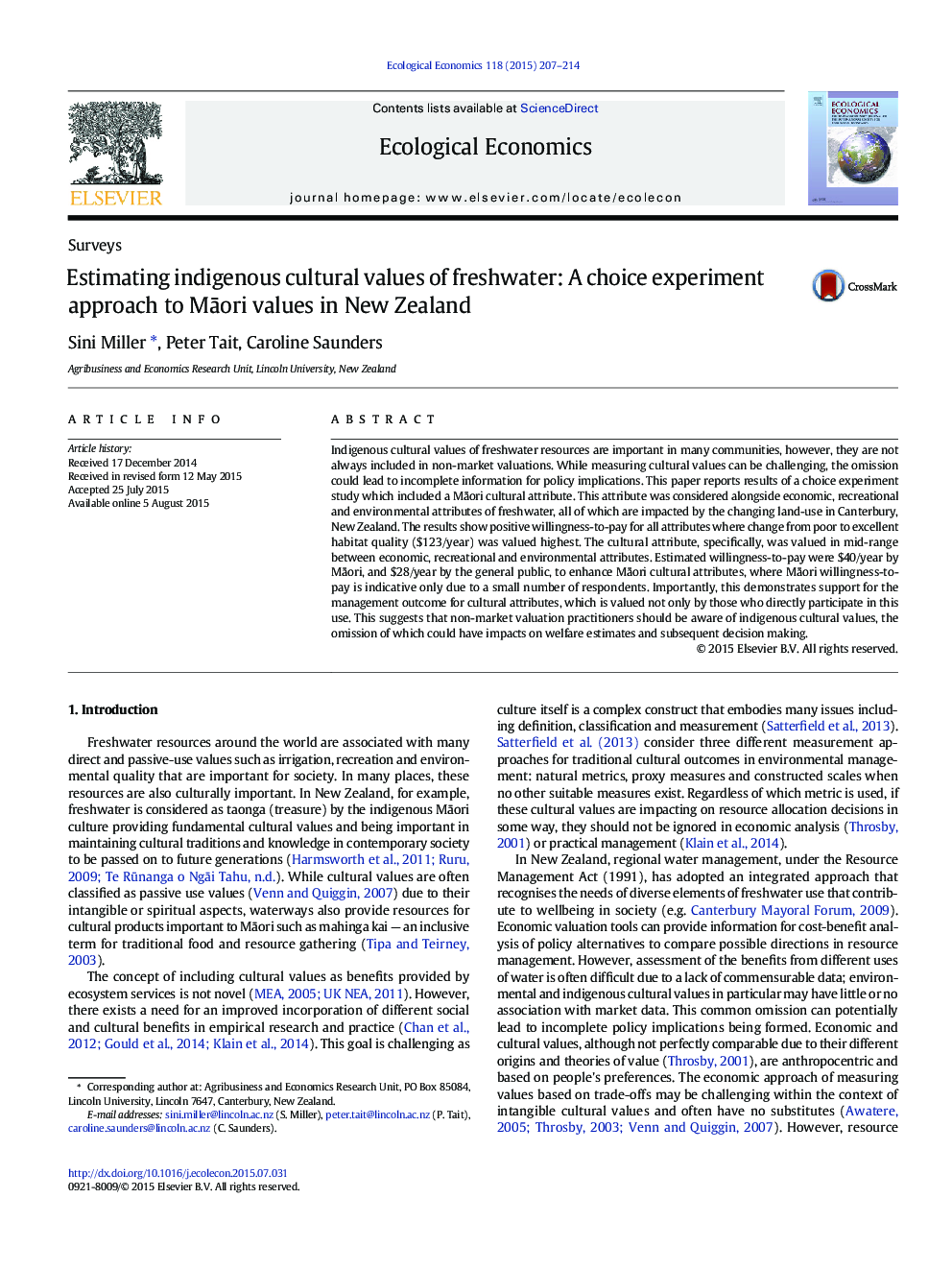| Article ID | Journal | Published Year | Pages | File Type |
|---|---|---|---|---|
| 5049352 | Ecological Economics | 2015 | 8 Pages |
â¢This paper explores the role of indigenous cultural attributes in freshwater valuation in New Zealand.â¢WTP for traditional resource gathering sits in the mid-range in relation to environmental, recreational and job attributes.â¢MÄori had higher WTP for the cultural attribute compared to general population.â¢Cultural values are considered important to the wider public, not just for MÄori.â¢There are possible impacts on welfare estimates if important cultural values are omitted.
Indigenous cultural values of freshwater resources are important in many communities, however, they are not always included in non-market valuations. While measuring cultural values can be challenging, the omission could lead to incomplete information for policy implications. This paper reports results of a choice experiment study which included a MÄori cultural attribute. This attribute was considered alongside economic, recreational and environmental attributes of freshwater, all of which are impacted by the changing land-use in Canterbury, New Zealand. The results show positive willingness-to-pay for all attributes where change from poor to excellent habitat quality ($123/year) was valued highest. The cultural attribute, specifically, was valued in mid-range between economic, recreational and environmental attributes. Estimated willingness-to-pay were $40/year by MÄori, and $28/year by the general public, to enhance MÄori cultural attributes, where MÄori willingness-to-pay is indicative only due to a small number of respondents. Importantly, this demonstrates support for the management outcome for cultural attributes, which is valued not only by those who directly participate in this use. This suggests that non-market valuation practitioners should be aware of indigenous cultural values, the omission of which could have impacts on welfare estimates and subsequent decision making.
